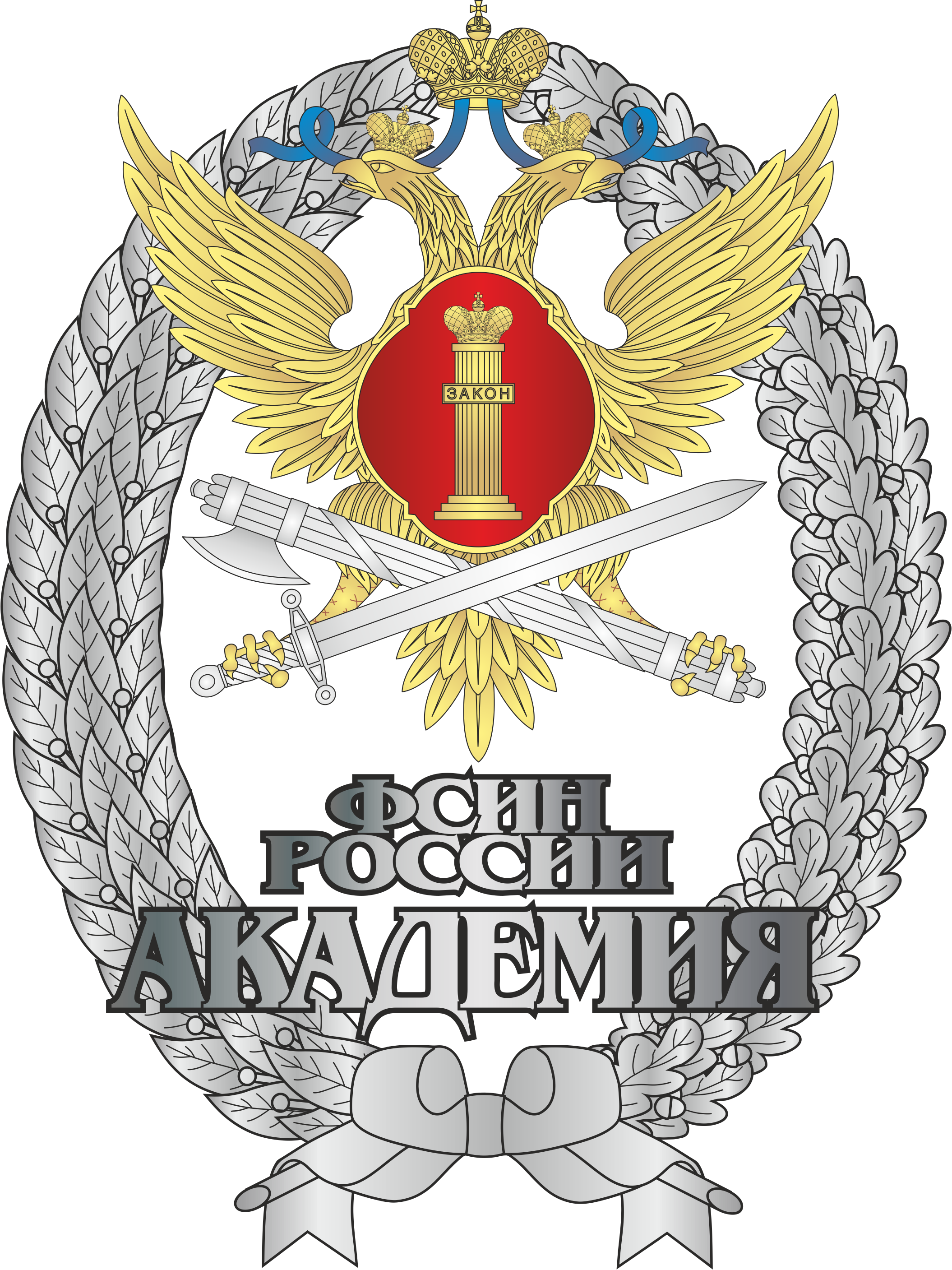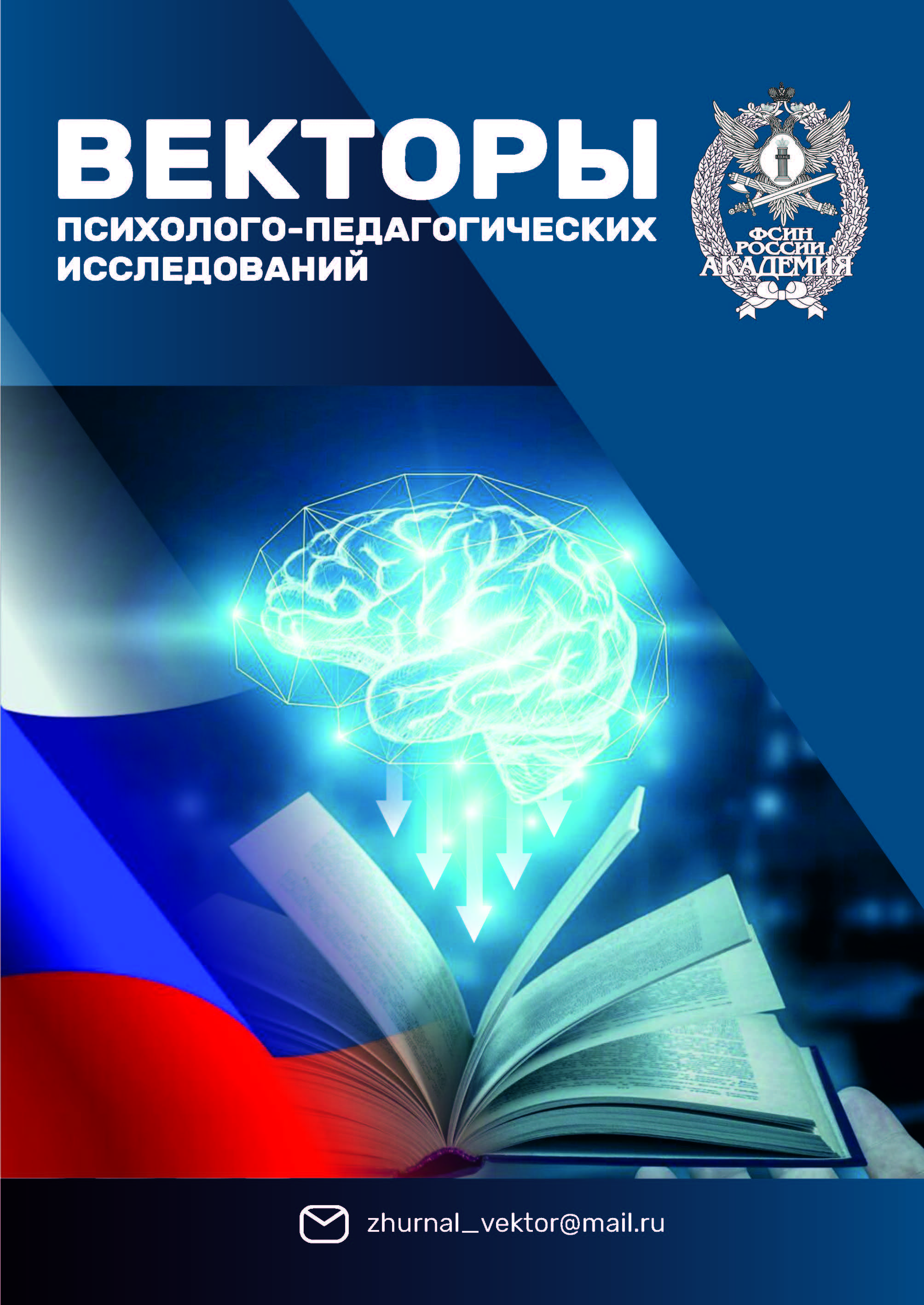Ryazan, Russian Federation
UDC 37.015.3
The article presents relevant approaches to the study of the psychological phenomenon of understanding as a key aspect of the problem of the formation of the legal entity of cadets of departmental educational organizations. Various approaches to the interpretation of the term “understanding” are analyzed: subjective, cognitive, methodological, semantic and logical. The main characteristics (depth, completeness and distinctness), functions and forms of understanding are considered, determined by the nature of cognitive situations. Particular attention is paid to the types of understanding, which are considered in accordance with the traditional areas of psychological research. An analysis of studies of the role of understanding in learning at the stage of higher education is presented. The significance of the formation of law understanding in the educational process of departmental organizations is revealed. It is determined that a high level of understanding of legal norms and their interpretation contributes to the effectiveness of training cadets for professional activities in the penal system.
characteristics of understanding, functions of understanding, types of understanding, form of understanding, levels of understanding, law understanding, the formation of law understanding
1. Meshcheryakov, B. & Zinchenko, V. (eds) 2003, A large psychological dictionary, Prime-Eurosign, St. Petersburg.
2. Znakov, V. V. 2007, Understanding in thinking, communication, human existence, Institute of Psychology of the Russian Academy of Sciences, Moscow.
3. Cheremisova, I. V. 2022, ‘Personal characteristics as components of the legal consciousness of a university student’, Man: crime and punishment, vol. 30, iss. 4, pp. 641–647.
4. Korzhavina, N. V. 2006, ‘The problem of understanding in education’, Modern high-tech technologies, iss. 7, pp. 73–75, viewed 22 November 2024, https://top-technologies.ru/ru/article/ view?id=23016.
5. Borzova, T. V. 2013, Theoretical foundations of understanding in education: monograph, Far Eastern State University for the Humanities, Khabarovsk.
6. Kvasyuk, T. Ya. 2010, ‘Understanding as a thought process’, Bulletin of Kostroma State University. Series: Pedagogy. Psychology. Sociokinetics, iss. 3, viewed 5 November 2024, https://cyberleninka.ru/article/n/ponimanie-kak-myslitelnyy-protsess.
7. Shadrikov, V. D. 2019, ‘Understanding: definition and mechanisms’, Cultural and historical psychology, vol. 15, iss. 4. pp. 17–24.
8. Rozanov, V. V. 1994, On understanding. The experience of exploring the nature, boundaries and internal structure of science as a whole knowledge, Nauka, St. Petersburg.
9. Voronin, V. M. & Itskovich, M. M. 2018, Understanding and values (norm and pathology): monograph, Azhur Publishing House, Yekaterinburg.
10. Borzova, T. V. 2015, Psychology of teaching students to understand: Sc.D thesis (Psychology), Khabarovsk.
11. Znakov, V. V. 2012, ‘Multidimensional human world: types of reality, understanding and social knowledge’, Bulletin of the Moscow University. Series 14, Psychology, iss. 3, pp. 18–29.
12. Borzova, T. V., Mosunova, L. A. 2020, ‘Conditions for the development of semantic understanding of information in the learning process’, Bulletin of the Novosibirsk State Pedagogical University, iss. 1, viewed 10 November 2024, https://cyberleninka.ru/article/n/usloviya-razvitiya- smyslovogo-ponimaniya-informatsii-v-protsesse-obucheniya.
13. Cheremisova, I. V. 2020, ‘Actual psychological, pedagogical and socio-psychological problems of professional development of employees of educational organizations of the Federal Penal Service’, Man: crime and punishment, vol. 28, iss. 4, pp. 613–619.
14. Yushko, A. V. 2007, Understanding of law: theoretical and methodological aspect: PhD (Law), Rostov-on-Don.
15. Evdeeva, N. V. 2007, ‘Legal awareness and legal understanding: dialectics of interaction’, Modern law, iss. 7, pp. 48–53.
16. Korobov, E. T. 2005, ‘Understanding as a didactic problem’, Moscow Psychological Journal, iss. 11.









